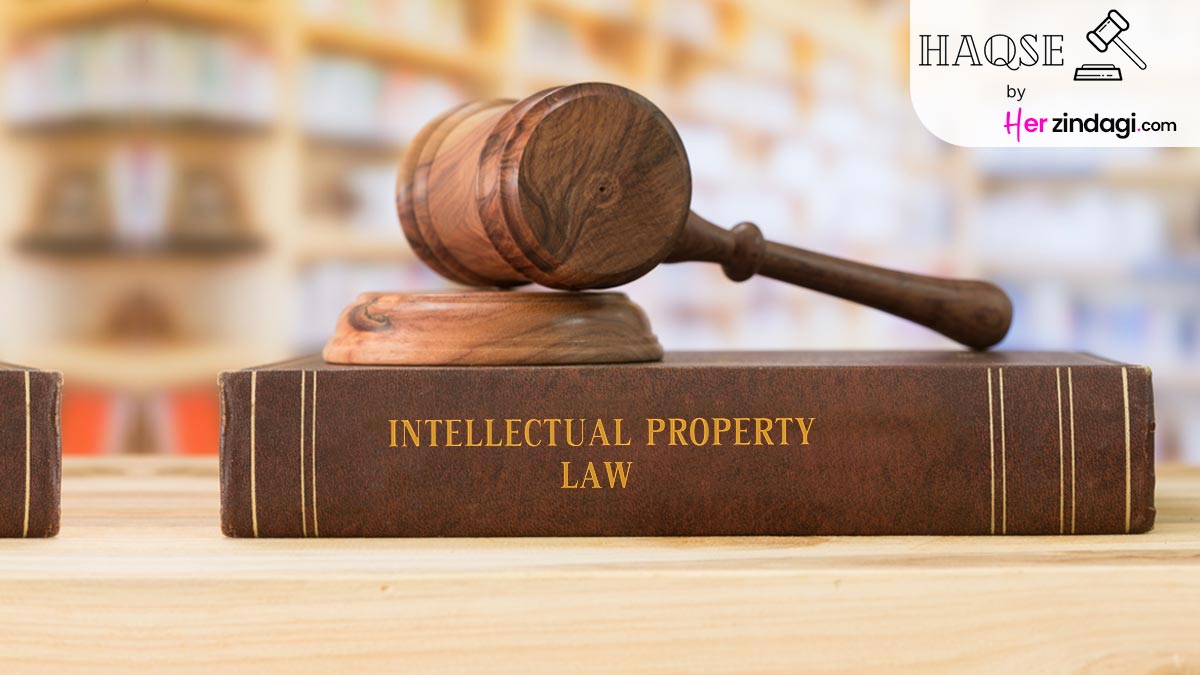
While there is a lot of buzz around Intellectual Properties (IPs) in the country lately, there is a chunk of people who aren't aware of IPs in detail. Patents, copyrights, and digital assets are some common types of IP but there is a lot more to be cognizant of if you are in this category of intangible creations. For the unversed, here’s a breakdown of IP, what they are, what are Intellectual Property Rights (IPR) in India, and how to claim IPR.
IP is the result of a human's creativity. It is an intangible form of property and most commonly includes designs, patents, and copyrights.
Trademarks, patents, layout designs, geographical indications, industrial design, and protection of undisclosed information/trade secrets according to TRIPs (Trade Related Aspects of Intellectual Property Rights) agreements are considered IP in India. IPR in the country allow the owners or creatives to make all the benefits from their work when they are used commercially. IP rights are statutory rights governed as per the provisions of the corresponding legislation. These rights honour the creativity and efforts of creators.
The Copyright Act, 1957
The act governs the copyright law in the country. It includes providing copyright in India to artistic works, sound recordings, cinematography films, original literature, and dramas. Internationally, protection acts like the Universal Copyright Convention of 1952 and the Berne Convention of 1886 which protects the original work of all the member states. India too is a member of such conventions. However, creators who are not registered under these conventions aren't protected and should apply for registration to keep their creations safe.
The Patents Act, 1970

The act governs the grant of a patent for new inventions in India. In India, according to the Indian Patent Law (IPL), the first-to-apply the patentee (person who is the proprietor of the patent) gets to apply first. The patentee has the exclusive right to offer rights of the patent to third parties with consent. In the country, every patent is granted for a term of 20 years. For renewal, third parties have to file the patentee the renewal fee.
The Designs Act, 2000
The act protects new and original designs in India. However, the designs have to meet some requirements like they shouldn't have been used in a prior publication, they can be applied to any article by any industrial means or process and should be visible in a finished article to name a few.
Don't Miss: 10 Women's Safety Rights You Need To Be Aware Of
The Trade Marks Act, 1999
This act governs the registration of trademarks for both goods and services in India. The act defines a trademark as a mark, capable of being represented graphically, it can include the shape of goods, packing, or combination of colours, indicating a connection with goods and services. Trademarks can be a brand name, device, label, name, letter, shape of goods, signature, and packaging among others. (property rights of women in India)

Supreme Court judge Justice Hima Kohli recently highlighted the challenges women face in the country in terms of IPR. She shared that this is due to gender bias, lack of awareness, education around intellectual property rights, limited access to legal resources and support, and discrimination in the workplace. Justice Hima Kohli further shared that women face issues related to IP because there aren't enough legal resources and support available. As a solution to this growing issue in the country. Justice Kohli shared that there was a need to change societal norms that limit the participation of women in the workforce and address the bias that continues to exist in the legal system for women creators. She added that more opportunities should be created for women to enter and advance in STEM (Science, Technology, Engineering, and Management)fields so that women creators can access resources to succeed in the sphere.
Don't Miss: HaqSe: Women Rights Against Sexual Harassment, Explained
We asked Supreme Court lawyer Ravi Gupta to share his take on IP and its rights in India. He said, "Intellectual property plays a very important role in innovation and creativity. It has the power to increase the economic growth of our country. When it comes to economic growth, both men and women contribute. More participation means more growth.”
"India was among the top 10 under Patent Cooperation Treaty (PCT) with a share from female inventors of only 10.2%. Although there are many female entrepreneurs in India, very few of them have patents. We need more female entrepreneurs participating in IP and understanding the laws. IP law is one of the most female-dominated laws."
Further, the legal expert shared that it is worrying to see women not being able to take advantage of their creations. He shared that they aren't able to take ownership of their IPs because of their unawareness of IPR. As entrepreneurs, women must be aware of their rights. With our series, HaqSe, we aim to educate you on your rights. Do share this article as much as you can to create awareness around IPlaws so that every woman can claim her rights.
Also watch this video
Herzindagi video
Our aim is to provide accurate, safe and expert verified information through our articles and social media handles. The remedies, advice and tips mentioned here are for general information only. Please consult your expert before trying any kind of health, beauty, life hacks or astrology related tips. For any feedback or complaint, contact us at compliant_gro@jagrannewmedia.com.